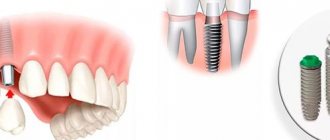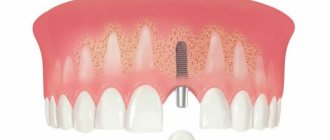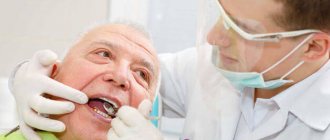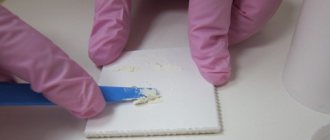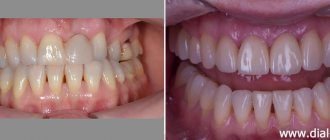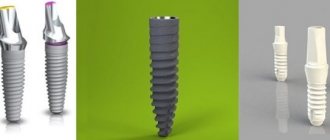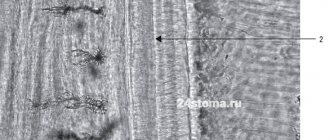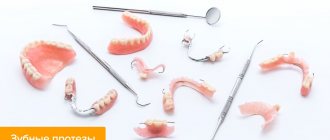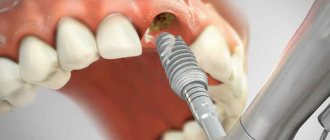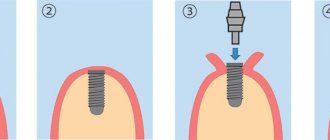The science of dentistry was created to study and treat various dental anomalies. Over time, it was divided into several subsections. One of which is engaged in restoring the integrity of the dentition. Prosthetic dentistry offers different types of services that previously seemed impossible. Dental implantation is one of them. With its help, new dental units are created, indistinguishable from natural ones. They are identical in shape and color and can withstand any load.
Prosthetics with implants is the replacement of lost teeth with artificial ones by implanting a titanium root (implant) into the bone. It has a lifetime shelf life, but subject to proper care and careful use. Compared to removable structures, crowns on implants are more reliable and look more aesthetically pleasing.
Modern dental instruments allow medical and surgical procedures to be performed painlessly and quickly. One such device is a laser. It can be used in various branches of medicine, both for adults and children. It is used to treat caries, whiten teeth, cut and cut off soft tissue.
The use of a metal scalpel is no longer required; in dental implantation, a laser beam perfectly copes with its tasks. In Europe and the West, this technology has been used for more than 15 years.
What is the essence of laser implantation?
The procedure protocol is practically no different from traditional implantation. To install the implant, the doctor needs to make an incision in the gum and bone tissue into which the titanium root will be implanted. During a normal operation, the incision is made using a scalpel or bur.
For laser implantation, a diode laser operating in the invisible spectrum is used. During implantation, the laser beam hits the gum and evaporates the intracellular fluid, thereby burning the tissue. The beam is very thin and works in both constant and pulsed radiation - this way the doctor can have maximum control over the incision site down to the millimeter, and special illumination helps to see the surgical field in detail.
Who is the procedure suitable for?
The procedure can be performed in the absence of one or more units in the dentition, as well as in complete edentia (absence of teeth). If other types of prosthetics are contraindicated for the patient, laser implantation may be prescribed. The decision on the advisability of the procedure is made by the doctor after examining the patient.
Sometimes the procedure will have to be abandoned in favor of other methods. Among the contraindications:
- the presence of neoplasms of any nature;
- pigment spots on the gums;
- diseases of the psyche and nervous system;
- endocrine diseases;
- chronic inflammatory processes.
Before installing the pin, the doctor collects a complete medical history and takes into account the condition of the oral cavity and the body as a whole. Particular attention is paid to elderly clients, people with infectious diseases, and lung diseases.
Indications and contraindications for laser implantation
There are no separate indications for surgery using a laser; it is recommended in the same cases as traditional implantation: replacement of teeth with single, group or complete absence and the inability to wear removable dentures.
This also applies to contraindications. Relative contraindications, after elimination of which the operation can be performed, include:
- insufficient bone tissue volume;
- caries and tartar;
- gum disease;
- pregnancy and lactation;
- temporary viral infections and decreased immunity.
Absolute contraindications under which surgery is not performed:
- diabetes;
- disorders of blood clotting, liver and kidney function;
- pathologies of the cardiovascular and nervous systems;
- tuberculosis and autoimmune diseases;
- bruxism;
- psychical deviations.
There are also a number of contraindications for laser implantation: the procedure is excluded if there is pigmentation or tumors of various types on the tissues of the oral cavity, mainly the gums.
Indications for prosthetics.
Typically, patients resort to orthopedic dentistry when one or more teeth are missing. If restoration is not started in time, due to lack of load, bone tissue begins to atrophy, the structure of the jaw and face shape are deformed, and speech is impaired. What other reasons are there for which you have to use the service of prosthetics, the implantation method:
- Complete or partial edentia.
- Wedge-shaped defect.
- Allergic reactions to the materials used in removable structures.
- Tooth destruction to the base.
Advantages of the laser method
Despite the fact that traditional implantation is successfully carried out in almost all dental clinics and has proven itself to be a reliable and effective method, laser surgery has more advantages.
- Sterility. During the operation, soft tissues do not come into contact with the instruments, so the risk of infection is eliminated. In addition, the laser beam itself has a bactericidal effect - it kills germs in the oral cavity.
- Low morbidity. Soft and bone tissues are burned exactly to the size of the implant; the laser beam helps not to touch even a millimeter of excess gum and bone area. Also, during cauterization, the beam seals the tissue, so during laser implantation the patient loses much less blood. And the doctor can work more accurately - without blood, the surgical field is better visible.
- Fast rehabilitation. Thanks to low blood loss and minimal intervention, the mucous membrane heals much faster, and the reduced risk of infection virtually eliminates the occurrence of complications after implantation.
- Aesthetics. Using a thin beam, the doctor makes a precise and small incision, so after the operation the patient does not face scars, cicatrices, or tissue displacement.
- Duration of the operation. The use of a laser reduces surgery time.
Reviews from our patients
Vladislav Topalov
I want to share a miracle with you. Yes Yes. MIRACLE. In 2022 I had my wisdom tooth removed. If anyone remembers, I wrote about it. Then I had to remove 3 more... and, as always happens, I gave up on it... a year and a half passed and I was told, as in the case of the first one, that I urgently needed to remove another one. And I decided that I was not ready to remove 3 more, one every year and a half. I called Kostya and asked him to delete 3 at once!!! Yes Yes! 3 at once! Under anesthesia. The operation was scheduled for 9.01. That is, yesterday. I’ll say it right away! Both then and now I PAID FOR EVERYTHING. I SHARE with YOU from the bottom of my heart, and not because they are doing something for me for free!!!! I, like 99% of us, am afraid of the dentist. I’m not afraid, of course, because I understand technology, anesthesia, etc.... but I'm afraid. Guys!!! I'M HAPPY! Yesterday, 3 teeth were removed in 15 minutes. Under sedation!!! I slept like a baby! Moreover - NOT A SINGLE SEAMLESS. Nothing hurts today. The face is NOT swollen. You can see it in the photo. I came today to see the doctor. If anyone needs to have their teeth removed - I PERSONALLY tell you - go to Konstantin Vladimirovich! He has GOLDEN hands!! Ahhh yes! I also DO NOT TAKE ANALGESICS!!! Yes, yes, you didn’t think so!!! He removed it so delicately that it doesn’t even hurt. Do you believe this? I'm not very... and all mine too. It is fantastic! Kostya, dear! God grant you health!!! Thank you so much!
Review on Instagram Read other reviews
Rehabilitation after laser implantation
Despite the fact that laser implantation is considered the least traumatic technique, it still remains a surgical intervention. Immediately after the effect of anesthesia wears off, the patient may feel pain, like after a tooth extraction - the discomfort can be relieved with painkillers prescribed by the doctor.
Swelling, redness and slight bleeding are also possible - use herbal rinses and treat the oral cavity with antiseptic preparations to speed up tissue healing. To relieve swelling, use cold compresses, apply this lotion every half hour.
The pain and swelling disappear within three days, but the patient may still experience discomfort due to unusual sensations - the artificial and real teeth feel different, and this is normal. It takes about a week to adapt to the implant, after which the difference is no longer noticeable.
The key to successful engraftment is not only the high-quality work of the doctor, but also the efforts and consciousness of the patient. A person’s behavior during the rehabilitation period is very important, in particular, compliance with the specialist’s recommendations.
- Be sure to carry out daily hygiene procedures - brushing your teeth, rinsing your mouth after eating. It is important to purchase a soft toothbrush, because a regular one is not suitable for irritated and injured tissues. Brush your teeth carefully, trying not to put pressure on the mucous membrane in the surgical area or touch the implant; to clean this area, it is better to buy a thin mono-beam brush.
- Eliminate solid foods from your diet; food should be taken in the form of porridge or puree. Avoid hot and cold drinks and foods; food at room temperature is best.
- Smoking is prohibited, as are sports activities, air travel, baths and saunas, and a swimming pool. Do not place unnecessary stress on the implant, as this may interfere with healing.
If you continue to feel pain or discomfort a week after surgery, consult your doctor!
Pros of laser dental implantation
An important indicator of the effectiveness of the above technology is providing more comfortable conditions for the patient and obtaining better results after its completion. Next, we will talk about the positive aspects of this technique compared to the classical type of implantation.
- Increased sterility. Due to the absence of direct contact of the instruments with tissues during exposure to the beam, the likelihood of their infection with such severe infectious diseases as hepatitis or HIV is eliminated;
- Excellent antibacterial properties. Laser radiation allows you to obtain a good bactericidal effect - with its help you can quickly deal with pathogenic microorganisms at the site of future fixation of dental systems. This prevents the occurrence of serious inflammation in this area and allows you to avoid dangerous consequences after surgery;
- Impeccable aesthetic parameters. Laser dental implantation helps to quickly eliminate aesthetic imperfections. For example, if there is a need for gum plastic surgery before permanent prosthetics, the use of a beam guarantees a reduction in the area of necrosis and eliminates the risk of shifting the edges of soft tissues;
- Saving time costs. The key advantage of the procedure is the ability to reduce the time it takes. The period during which surgery is usually performed is reduced by approximately 40%;
- Increased degree of comfort. When laser implantation is performed, all restoration processes occur with higher speed and ease, in contrast to the standard method. This eliminates the possibility of severe bleeding, since under the influence of laser radiation instant blood clotting is achieved. It is possible to prevent the possibility of other undesirable consequences due to its unique bactericidal properties and increased sterility.
Cost of laser implantation
The high price of laser implantation is perhaps the only drawback of this technique. The cost is indeed much higher than traditional surgery. This is explained by the fact that the technique is not yet widespread enough in clinics; to carry it out, doctors need to undergo training and advanced training, and dentistry needs to purchase new expensive equipment.
We have described all the advantages and features of laser implantation, but the right to decide which technique to prefer remains with the patient. Traditional implantation is a proven technique, and its price is much lower. The main thing is to find a professional doctor and follow all postoperative recommendations.
Factors influencing the risk of complications
These factors simultaneously influence the service life of the implant.
- The quality of the implant and prosthesis. This includes the biocompatibility of the material, physical properties, quality, mechanical strength, reliability of the connection of individual parts, microstructure, shape, quality of installation, as well as the manufacture of the crown.
- Implantation method and accompanying conditions. It combines the time it took for implantation, compliance with sterility, the traumatic nature of the manipulation, compliance with the rules of implantation, and the correct drilling of the holes.
- Caring for artificial teeth. Includes compliance with hygiene rules, mastering hygiene skills, sanitation of the oral cavity, proper care of dentures, treatment of caries lesions, and undergoing professional oral hygiene sessions.
Cost of installing implants with laser
The cost of laser dental implantation, i.e. the use of a laser when installing implants is not always considered as a separate manipulation (which can be abandoned by choosing a classic instrumental operation). It’s just that the final price of treatment increases by 10-20% from the market average. But the more implants are installed at the same time, the lower the percentage, as a rule. Large clinics that have a competent pricing policy do not include the cost of the “laser knife” in the price list - after all, it is also important for dentists that patients return to normal life faster after surgery.
Grigoryan A.S., Kulakov A.A., Abdullaev F.M. and others. Experimental study of the effectiveness of various methods of direct implantation, 2002.
Author: Dzhutova A. V. (Thank you for your help in writing the article and the information provided)
When is laser use indicated?
Laser dental implantation is carried out for various indications: when it is necessary to restore 1-2 teeth or the entire jaw, it is planned to implant implants using the classical two-stage technology or with immediate loading of an orthopedic design. The issue of using a laser becomes especially relevant when the patient is faced with the impossibility of installing a removable prosthetic device or there are specific contraindications to other methods of implantation.
Read on the topic: indications and contraindications for installing implants - a complete list of dos and don’ts.
Feel
- A day after the operation, some pain may appear, often reminiscent of the consequences of tooth extraction. In this case, it is allowed to use traditional painkillers (tempalgin, analgin and others), which effectively relieve the pain effect.
- Also, upon completion of implantation, there is a possibility of developing some swelling, which, however, completely resolves the next day.
- The adjustment period is one week. If the procedure was carried out according to all the rules, technologies and standards, then after a week the patient ceases to feel the difference between his own and artificial teeth.
The essence of using a laser for implantation
What is laser dental implantation? You need to understand that laser implantation is not an independent method. This is only an addition to any other treatment protocols.
The main distinguishing feature is the use of a laser to cut the gums. To do this, special equipment is used - the beam is directed to the selected location, where an incision of the required length and depth is formed. The laser also helps prepare the bed for the structure. Under its influence, moisture evaporates and the injured edges of the mucous membrane become clogged. In this case, a specialist can control the operation of the device, using both pulsed and constant radiation, based on the situation.
Beam prosthesis from RUB 170,000!
Preparation of the oral cavity, individual bar with installation, taking impressions, manufacturing, installation and fitting of dentures. The price is for 1 jaw. Lifetime guarantee! Consultation with a doctor is free! Call now: +7 (495) 215-52-31
Note! Most often, implantologists use a diode type of laser. Its power corresponds to 0.6-0.7 W, and the wave range is about 810 Nm .
The laser makes it possible to significantly speed up the process of implantation and promote faster tissue restoration. In general, the use of laser equipment simplifies the task for the doctor and makes the process more comfortable for the patient.
In general, many patients believe that the laser makes it possible to do without other surgical instruments, in particular burs. But this is not so: the bed for the implant is created in the traditional way, but the laser allows for antiseptic treatment and thereby simplifies the wound healing process.
What are the disadvantages
Finding any significant drawback in the use of laser as part of dental implantation is not an easy task. Experts in the field of implantology highlight only indirect disadvantages, which are not directly related to the technique under consideration. Firstly, the use of laser equipment may slightly increase the cost of treatment - not every patient can afford such an operation. Secondly, in most dentistry, especially in the regions, there is simply no such modern, expensive equipment, which limits the use of laser techniques in small towns.
